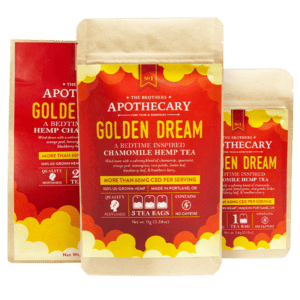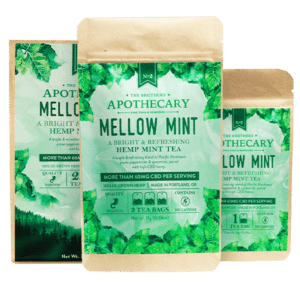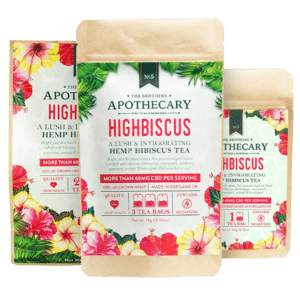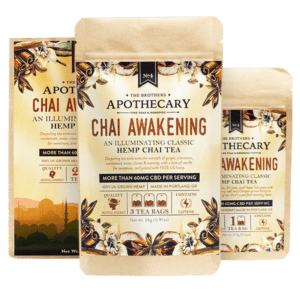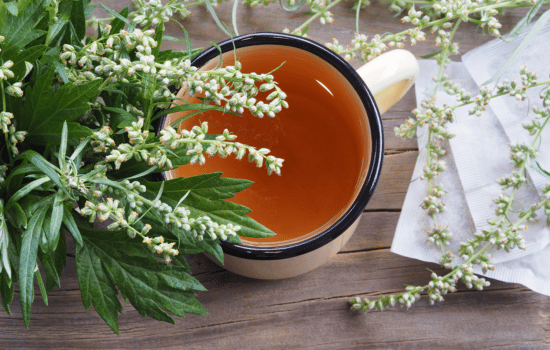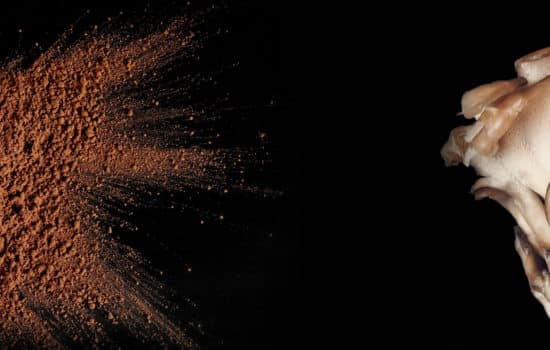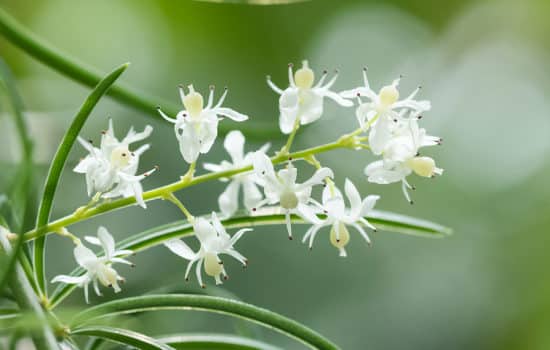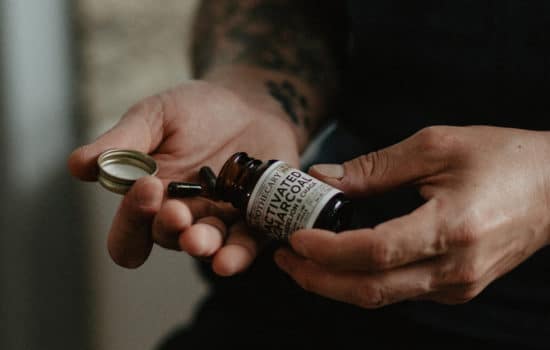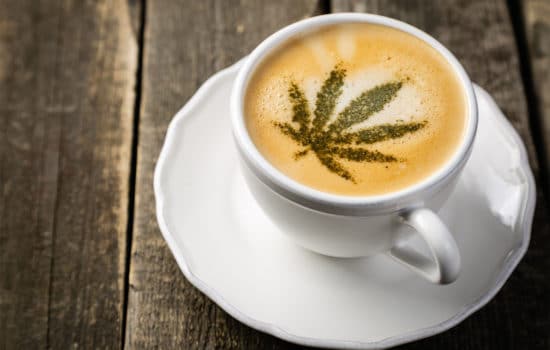If you’ve heard of the many benefits associated with CBD, you may be wondering…is this legit? Can this tiny cannabis compound have such an effect on your wellbeing? And if so, how?
We understand these questions, and at The Brothers Apothecary, we’re here to break it all down. Let’s get into it!
What Is CBD?
CBD is a phytocannabinoid found in the marijuana plant or cannabis plant. While there are over 100 cannabinoids in this plant, the two most active and well-known are Cannabidiol (CBD) and Tetrahydrocannabinol (THC).
While THC and CBD are chemically similar, their effects on the body differ. CBD does not cause any psychoactive effects associated with being high. Instead, this compound from the cannabis Sativa plant supports the body’s natural mechanisms to assist with the regulation of numerous vital functions.
What Can CBD Be Used For?
CBD can support the body in regulating discomfort, mood, sleep, appetite, and more. Let’s discuss more about it below.
Relaxation
One of the main reasons people use CBD is to help them relax. This nourishing plant compound can aid in calming the mind and lowering stress levels, helping you unwind whenever you feel overwhelmed.
Tension Relief
The neck, shoulders, and jaw – these are all parts of the body that can hold unwanted tension. If the physical effects of stress weigh on you, CBD may be able to help you find temporary relief. Along with calming the mind, CBD can work throughout the body to relieve tension.
Easing Discomfort
CBD’s naturally soothing properties can help ease the discomfort that can crop up throughout the body, such as swollen joints or sore muscles.
Promoting Sleep
If you’ve ever found yourself tossing and turning through the night, you’re familiar with the ways a restless mind or tense body can disrupt your sleep cycle. By promoting relaxation and calm, CBD can help you fall and stay asleep and may even help the body drift into a deeper and more restful form of sleep: NREM Stage 3 sleep.
Digestive Health
CBD can help the body stimulate appetite and movement of stomach muscles that assist with digestive health and nutrient absorption.
And if symptoms of stress show up in your digestive tract, such as indigestion or nausea, CBD is there to help you find temporary relief. Just a few drops of our Peppermint CBD Stomach Soother can help settle a sour stomach while promoting relaxation.
What Does CBD Do in the Body?
So, how can a plant compound provide all of these benefits? To understand that, we have to understand the endocannabinoid system.
Understanding the Endocannabinoid System
Our body contains many systems to keep itself balanced and functioning. When it comes to life-sustaining functions, there is a normal range that the body should stay within. If something strays outside that normal range, chemical messages sound an alarm, so to speak, leading other parts of the body to tend to the irregularity and restore balance.
One of these internal messaging systems is the endocannabinoid system.
That’s right; your body produces its own set of cannabinoids called endocannabinoids. These endocannabinoids are produced on-demand in the brain when something in the body is out of sorts. They can move through the bloodstream to bind with cannabinoid receptors (mainly CB1 and CB2 receptors) wherever the irregularity stems from.
CB1 receptors in the brain regulate mood, stress levels, and sleep. CB1 receptors are also found throughout the central nervous system, skeletal muscle system, and digestive tract, while CB2 receptors are found in immune cells throughout the body.
When endocannabinoids bind with these CB receptors outside of the brain, they can help and support the immune system by temporarily reducing swelling, relieving discomfort, and easing tension. After binding with CB receptors to produce the desired effects, endocannabinoids are broken back down into their most basic form by enzymes.
And here is where CBD comes in.
Because phytocannabinoids like CBD are chemically similar to our endocannabinoids, they are easily incorporated into the endocannabinoid system. While THC can bind directly to cb1 receptors in the brain–causing the psychoactive effects–CBD works by supporting our endocannabinoids and temporarily blocking enzymes from breaking them down.
Some researchers also believe CBD may bind with receptors we haven’t discovered yet, but more research is needed.
To put it simply: CBD strengthens and prolongs the body’s natural ability to respond to irregularities and promote wellness.
Effects of Cannabinoids on the Nervous System
Cannabinoids in the endocannabinoid system can also interact with hormones and neurotransmitters like cortisol, serotonin, and dopamine to help regulate body functions, lower stress, and enhance mood.
The endocannabinoid system also plays a crucial role in uncomfortable sensations. When nerve cells send messages to the brain, the brain produces endocannabinoids to provide immediate relief, and CBD can strengthen their effects.
How Long Does It Take For CBD To Work?
CBD can typically take between 15 minutes and an hour to kick in, depending on the dosage.
CBD topicals tend to start working within minutes as they are absorbed into the skin, while CBD edibles take closer to an hour, as they need to move through the digestive tract before getting absorbed into the bloodstream.
The effects of CBD can last for anywhere between two to eight hours, and consistently taking doses of CBD can help prolong the effects, as CBD can build in the body over time.
Which Form of CBD Is Most Effective?
Different forms of CBD can help provide support in different ways.
For instance, if you’re looking for fast-acting full-body relief, a few drops of CBD oil or tinctures under the tongue may be most effective. If you want to use CBD to promote sleep, a gummy or capsule an hour before bed can calm the mind and support the work of your endocannabinoids all through the night.
And if you are dealing with swollen joints, muscle spasticity, or sore muscles, applying a CBD topical, like our Pain Away CBD Roller, directly to the point of discomfort can help provide relief within minutes.
You’ll also want to consider whether you want a full-spectrum, broad-spectrum, or isolated CBD product. Full-spectrum CBD products include all nourishing plant parts–the terpenes, flavonoids, and other cannabinoids. Together, these compounds produce the entourage effect, meaning that they strengthen the effects of one another to provide more support than a single compound can do on its own.
While full-spectrum CBD is considered the most effective, it does include a small, legal amount of THC, so if you are sensitive to THC or worried about it showing up on a drug test, a broad-spectrum or isolated option may be better.
Broad-spectrum CBD includes all plant compounds except THC, meaning it can still produce a somewhat less-intense version of the entourage effect but will not show up on a drug test. It will also contain an array of other cannabinoids, such as CBG, CBN, and CBCA.
Isolated CBD is an extract containing only CBD as an active ingredient, with no other compounds added. Always read the label to understand what your product contains, and keep in mind that isolation may not be a 100% perfect process. Other cannabinoids may remain in trace amounts.
Ultimately, there is no one correct answer to the most effective form of CBD. It all depends on your body and your personal preferences!
The Bottom Line
When using high-quality, organic, and third-party tested CBD products like those found at The Brothers Apothecary, CBD can help your body maintain homeostasis by supporting systems already in place.
Now that you know the basics, you can explore the many forms of CBD available to find the one that fits you best!
Ready to learn more with The Brothers Apothecary? Don’t forget to check out our blog.
Sources:
Jesse Richardson is the co-founder of The Brothers Apothecary. He's an avid tea drinker and the primary creator behind The Brothers' products. An undergraduate of UCLA for Political Science, Jesse currently studies Medicinal Plants at Cornell University and The International School of Herbal Arts & Sciences.



